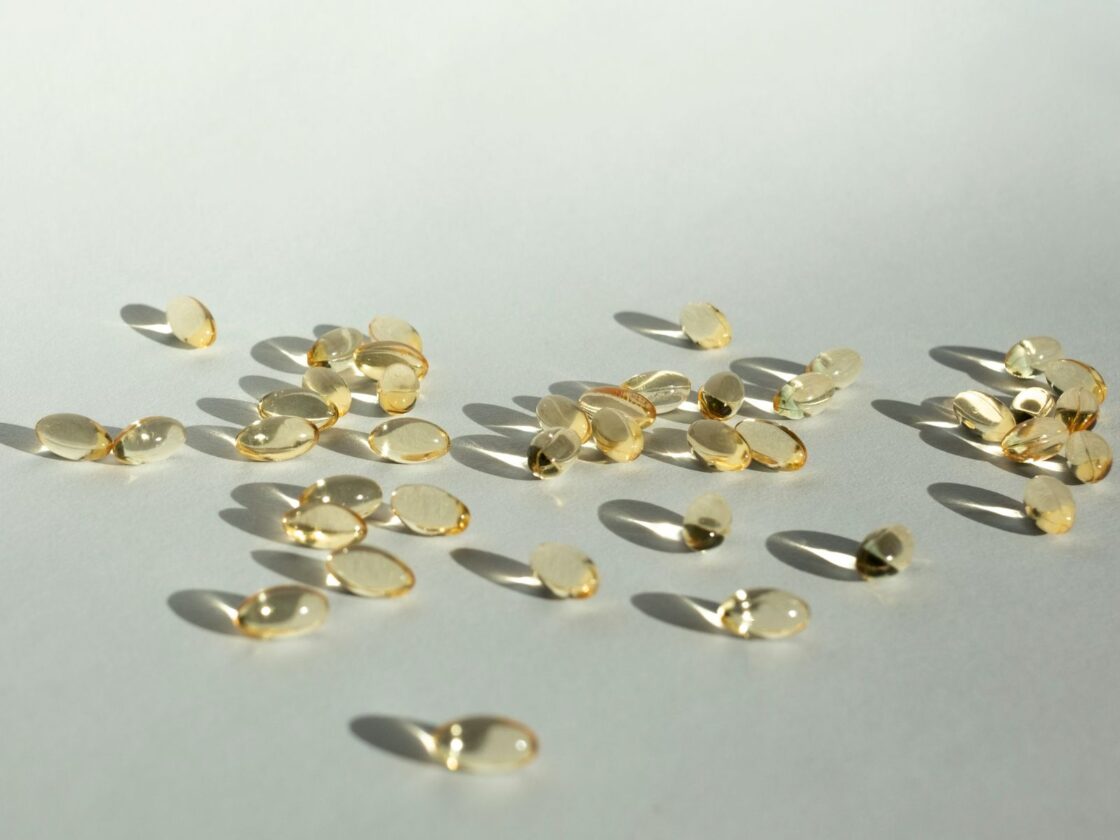7 Natural Remedies to Ease Menopause Symptoms

Menopause occurs when a woman’s menstrual period stops. Like the rest of the human experience, menopause is not as simple as an “on-off” switch. The hormonal stage leading up to menopause, called perimenopause, usually occurs over a long period of time and includes changes that affect well-being in complex ways.
Perimenopause and menopause are often misunderstood and even feared. Learning how to find natural remedies to ease menopause symptoms helps you experience this part of life with joy and understanding.
Sign up for the newsletter for more health and wellness tips.
What Happens to a Woman During Menopause?

The main driver of menopause is a hormonal shift. As women age, their estrogen levels drop, which eventually leads to a halt in ovulation. This shift impacts metabolism, muscle mass, bone health, sleep patterns, moods, comfort, sex drive, and more1.
For most women, perimenopause begins when a woman is in her mid-forties. Menopause, the time when a woman’s period has stopped for 12 consecutive months, occurs between the ages of 45 and 55, on average.
Do Men Go Through Menopause?

Men can experience a drop in testosterone that presents with similar symptoms to perimenopause, but it’s not quite the same thing. Every person’s body changes as they age, and each person’s body will do so in a unique way. No matter your gender, it is always a good idea to develop a dialogue with your body. As things change, it’s important to listen and adjust.
You might find that as you age, you need to shift your eating habits, make small lifestyle edits, or get to the doctor to address a long-standing issue before it gets out of hand. This is especially relevant for people going through perimenopause, menopause, and postmenopause (the period after menopause occurs).
How to Use Nutrition to Ease Menopause Symptoms Naturally

Can food help balance your hormones? Absolutely. It’s important to understand that health is not just a matter of what you put in your body. As your body changes with age, you’ll want to support your health holistically through physical, emotional, and spiritual avenues.
Let’s start by taking a look at how nutrition can support you through the changes that come along with age and perimenopause. Research shows hormonal shifts, namely a drop in estrogen, cause bodies the body to change2. These hormonal shifts can cause weight gain, muscle and bone loss, and an increased risk for cardiovascular and metabolic diseases.
Take your health into your own hands by trying these helpful natural remedies to ease menopause symptoms.
1. Eat More Protein and Plant Foods

Eating more protein and plant foods can help protect against the deleterious shifts that occur during this time. Protein helps maintain a healthy body mass, strength, and physical function and is one of the best natural remedies to ease menopause symptoms.
Plant foods are full of anti-inflammatory and antioxidant properties that protect cells from degeneration. Vegetables and fruits are also known to safeguard against oxidative stress and support muscle function and energy metabolism3. Look for simple ways to add more plant foods into your weekly rotation of meals or snacks. It could be adding a simple grilled tomato recipe instead of grass-fed steak or swapping out an old standby like layered bean dip with a nutritious plant-based version.
2. Supplement with Vitamins

Aside from eating a diet rich in wholesome protein and plant foods, women going through the menopausal period may find that certain supplements can help keep their bodies balanced. Many turn to supplements for support during perimenopause and menopause4. It is always recommended to check with your doctor before starting a new supplement regimen.
Regardless of your menopausal status, as you age, you might need to take an active role in supporting your body to do what it needs to do to stay vital.
Research has shown that B vitamins such as folate and vitamins B2, B6, B12, and vitamin C can benefit a person in the menopausal period by supporting cognitive and bone health and that vitamin D may support quality of life and disease prevention5. Probiotics can help your estrogen levels stay balanced by promoting gut health.
Additionally, supplements such as spermidine can support cell function at a time when your cells become less efficient at cleansing and dividing6. Herbs, such as this beautiful herbal tincture recipe from Dr. Aviva Romm, may help relieve some of the more uncomfortable symptoms of menopause, such as hot flashes. If you don’t want to make your own tincture, this organic one has similar ingredients. Regardless of your menopausal status, as you age, you might need to take an active role in supporting your body to do what it needs to do to stay vital.
3. Prioritize Emotional Support

Beyond nutrition, it is so important to prioritize emotional support — hormonal fluctuations can cause mood swings7. But also, change can be challenging, especially if your body’s look or function plays a big role in your identity identity
These changes can impact your relationships. If you are unsure how you are relating to your own body, you may find it difficult to relate to other people.
Adopting practices such as visiting a therapist and engaging in transparent communication with your partner about the changes that you are going through (menopause can change your sex drive, too) can help you build a thriving life as you get older8.
4. Practice Spirituality

Spiritual work can help minimize the emotional stress that can come along with perimenopause and menopause, which is one of the best natural remedies to ease menopause symptoms. It can help to approach change from a place of self-grace. Practices such as meditation, prayer, reflection, and energy work can help you address the deeper and more nuanced emotions and effects of menopause.
5. Exercise

There are other physical considerations to take on top of nutrition. Women who are going through menopause are particularly prone to experience bone loss due to the drop in estrogen9.
Exercise, and especially strength training, can help you both protect your bones and boost your metabolism as you get older10.
6. Rest

Sleep is absolutely crucial for the healthy function of your entire body. Restful sleep supports cognitive, emotional, metabolic, and immune health (and so much more). Unfortunately, perimenopause and menopause can impact sleep patterns11.
Despite the fact that you might be having trouble sleeping, sleep really is one of the most important things you can do to support your longevity. One of the best natural remedies to ease menopause symptoms is by helping your body get as much sleep as possible by limiting caffeine and alcohol and carving out time to get ample rest and rejuvenation throughout the week.
7. Bioidentical Hormone Replacement Therapy

While you may want to treat all of your menopause symptoms naturally with foods and herbs, there can be benefits to bioidentical hormone replacement therapy12. As always, chat with your doctor about the benefits and risks of any treatment and make an informed decision that is right for you.
More important than any one wellness practice is to find ways to extend love to yourself and your body during menopause and all of life’s other changes. One of the best ways that you can take care of yourself, no matter what you’re going through, is by approaching change with patience, curiosity, and an openness to welcome growth and expansion.
Read More on Organic Authority

Mascary! Make-up May Cause Early Menopause
Early Menopause Caused By Exposure to Phthalates, Pesticides, and Other Chemicals
9 Fast-Acting Natural Remedies for Heartburn (Plus 5 Long-Term Solutions)
Sources:
- https://www.nia.nih.gov/news/research-explores-impact-menopause-womens-health-and-aging
- https://pmc.ncbi.nlm.nih.gov/articles/PMC10823308/
- https://pmc.ncbi.nlm.nih.gov/articles/PMC10084981/
- https://pmc.ncbi.nlm.nih.gov/articles/PMC10780928/
- https://pmc.ncbi.nlm.nih.gov/articles/PMC6372850/
- https://pubmed.ncbi.nlm.nih.gov/29371440/
- https://pmc.ncbi.nlm.nih.gov/articles/PMC8475932/
- https://pmc.ncbi.nlm.nih.gov/articles/PMC6780739/
- https://pmc.ncbi.nlm.nih.gov/articles/PMC9683465/
- https://pmc.ncbi.nlm.nih.gov/articles/PMC9864448/
- https://pmc.ncbi.nlm.nih.gov/articles/PMC6718648/
- https://pmc.ncbi.nlm.nih.gov/articles/PMC8034540/

